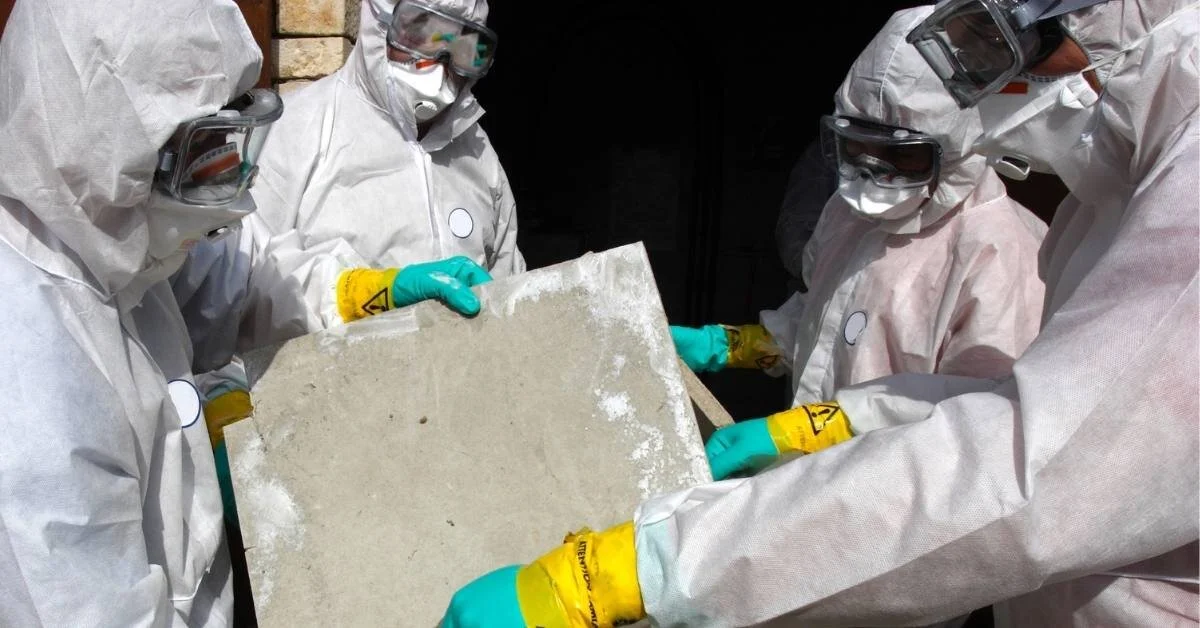If you are in the process of selling your home and find traces of asbestos, you might be wary if it would curb your home sale. But finding asbestos is not always a deal-breaker, and it is still perfectly legal to sell.
Alternatively, you could have it fixed professionally, and the scope and cost would vary depending on what you are dealing with.
In the below article, learn what asbestos is, why it can be a home hazard, and how to remediate it if discovered in a property.
What is asbestos?
Asbestos is a natural mineral fiber used in the past as a flame-retardant strengthening agent that provided heat insulation. From 1930 to 1980, it was used in several property building materials, including but not limited to:
Roofing, shingles, and siding
Vermiculite insulation (standard in homes built in the 1930s to 1950s).
Textured paint
Patching and joint compounds
Vinyl sheet flooring
Hot water and steam pipes
9”x9” floor tiles
Acoustic ceiling tiles
White tape on heating ducts
Insulation on boiler pipes and boilers
Old asbestos cement siding
Popcorn ceiling texture
Glues used under flooring
Is asbestos harmful?
Later on, researchers came to realize that asbestos exposure can pose health risks like shortness of breath and chest pain, even long-term health problems such as mesothelioma and asbestosis.
Exposure to damaged or disturbed asbestos is dangerous and can be life-threatening. Nowadays, asbestos is banned for use in materials such as roll boards, flooring felt, commercial paper, among other products. The use of asbestos today in new builds is restricted through the Toxic Substances Control Act, and new uses have to go through testing and EPA approval before implementation.
Asbestos in your home
If your home was built before the 80's and you suspect there could be traces of asbestos, refrain from trying to deal with it yourself. There is nothing more dangerous than DIY-ing asbestos remediation.
You can hire an industrial hygienist to evaluate your home. They follow a thorough testing protocol and will take samples from your property. Once you have the results, you would know which materials contain asbestos. Most contractors also provide a protocol for safely removing these materials.
Should you have plans to have your home remodeled or renovated, make sure to inform your contractor since this is when the materials get damaged and aerosolized, exposing the people working or living in the property.
Laws regarding asbestos vary per state, but most require:
Homeowners to test for asbestos before any construction or renovation project.
Contractors to obtain a written asbestos report from a building owner before work.
Asbestos remediation to be performed by licensed abatement contractors before starting demolition work.
Selling a home with asbestos
You have a couple of choices in addressing the presence of asbestos in your home. If you hope to sell and suspect there are traces of asbestos, you might want to consider getting out in front of the issue.
You can wait until a potential buyer seeks official testing after an inspection, but being proactive can potentially bring you more power at the bargaining table. Testing before selling could give you and your potential buyers peace of mind.
The testing cost varies per state depending on regulations. Offsite testing starts at $50 depending on analysis, while onsite testing ranges from $250 to $750. Suppose a potential buyer asks for a complete evaluation. In that case, you are not compelled to grant this request as it can disrupt the asbestos in your property.
Depending on your location, you may be required to disclose the presence of asbestos to potential buyers (as they would have grounds to file for damages suffered down the line if you don't). As long as it is made known and made part of the seller's disclosure, you are legally permitted to sell a home with asbestos in it.
Environmental Hazards Environmental hazards include everything from expansive soils to landslides to forest fires, tsunamis, floods, and earthquakes. Environmental hazards can also include indoor air quality (e.g., radon, mold, or carbon monoxide) and hazardous materials, like asbestos. Environmental hazards known to the seller must be disclosed to all buyers. Sellers in doubt about such hazards should check with the county in which the property is located (Oregon counties can be located here).
Once disclosed, a potential buyer might ask for a price drop or ask for repair coverage. In this case, it is also worthwhile getting an estimate on the cost of containment.
Disclosing the presence of asbestos and selling your home for cash
If your property is confirmed to have asbestos that needs to be removed, but you are not interested in bearing the costs, you might want to consider selling your property as is. This is highly recommended if your home needs an extensive asbestos removal that you are unwilling to take on.
At Ash Creek, we are very familiar with the process and we are not deterred by a home that has traces of asbestos in it. If you are from the Portland area and dealing with this particular situation, we’d like to chat with you about how you can avoid the costs and time associated with asbestos removal before selling your house.

